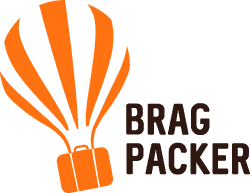There are currently no medicines or vaccines for the Corono virus. Prevention is thus the best and only remedy available at the moment. Taking the right precautions can significantly reduce the risk of infections, wherever you are. Unless you live under a rock, you would have already heard of the obvious (but most important) ones of washing your hands frequently, not touching your face. Here are some additional pointers:
Air travel:
A few pointers on air travel in terms of risks and do’s and don’t’s are below.
- The risk of infection is highest within 2 rows of an infected person.
- Window seats are safer than aisle seats as far as risk of infection is concerned, due to lower mobility
- Shorter flights do reduce the risk of infection.
- Avoiding use of toilets or moving around in the flight can be helpful. Carrying a pair of surgical gloves to use inside the toilet, if you do need to go, may be a good idea.
- Bring a disinfecting wipe to clean the tray and the arm rests at your seat.
- Keep yourself warm and avoid ice in your drinks – may not help with this virus but will keep you from sniffling and panicking everyone around!
- Atleast for the flight, you may use a sanitizer to disinfect your hands instead of washing them at the toilet.
- If you find someone sneezing or coughing in rows close to you (within 2 rows front and 2 rows back) and there are alternate empty seats available, ask the crew to move you
- Turning on the AC vent and directing it to your face will help breathe in filtered air
Wearing Masks:
- Experts are divided on the use of masks by asymptomatic people as they do not help much and create shortages for health providers. But if you are going to a high-risk area, then a regular paper mask is not going to be of much use in terms of actual protection against the virus. Your regular pollution masks (Pitta Masks) used to filter out dust etc (used mostly by bikers) will also not be of any particular help with viruses.
- The masks designated as N95 respirators, which are thicker will provide the best protection (short of a gas mask). However, you will need to learn how to wear them properly. Also, note that they are difficult to breathe in for long periods of time, so are impractical for all day wear.
- A basic surgical mask may be a more cost effective and practical option that will protect from respiratory droplets (think someone sneezing on your face) but wont offer airtight protection, so to speak.
- On the other hand, if you show any symptoms of the infection or even for a general cold, please do wear a mask (a regular surgical mask) and ensure you cough/sneeze into it. Always keep wet wipes and sanitizers handy to clean the area around you to disinfect them before you leave the place.
Travel insurance:
- Unfortunately, viral outbreaks, epidemics and pandemics are not typically listed in a travel insurance policy, so standard policy may prove to be useless to protect you in the case of a corona infection. Please speak with the insurer and clarify whether medical and/or cancellations will be covered under their policy. These policies are called “Cancel for Any Reason” or CFAR policies and will likely cost you a more. But will be worth the extra money.
Medical exigencies:
- Preparing for the eventuality of an infection is essential. Map out the closest health centres with the right facilities at your travel destination and be armed with that information before you go.
- If there is no nearby health facility that provides mechanical ventilation, then you should reconsider the destination or work out a clear contingency plan.
- Consult your doctor on what meds to take along for existing conditions
Things to Carry:
- Disinfecting Wipes
- Surgical Gloves
- Face Mask (N95)
- Alcohol based Sanitizer with atleast 60% alcohol
- If you tend to feel itchy on the face, carry something that you can use to scratch your face instead of your hand and keep it sanitized.
- A good book to read/ music to play, so you can relax and not stress about getting ill
If you are unsure whether to cancel an existing trip or whether to go ahead with your summer travel plan, you can find statistics, resources and advice on taking this call, right here.
Be safe, wash your hands and have fun!
Disclaimer: This page does not provide medical advice. It is intended for informational purposes only. You are encouraged to confirm and update any information obtained from or through this page with other sources.


